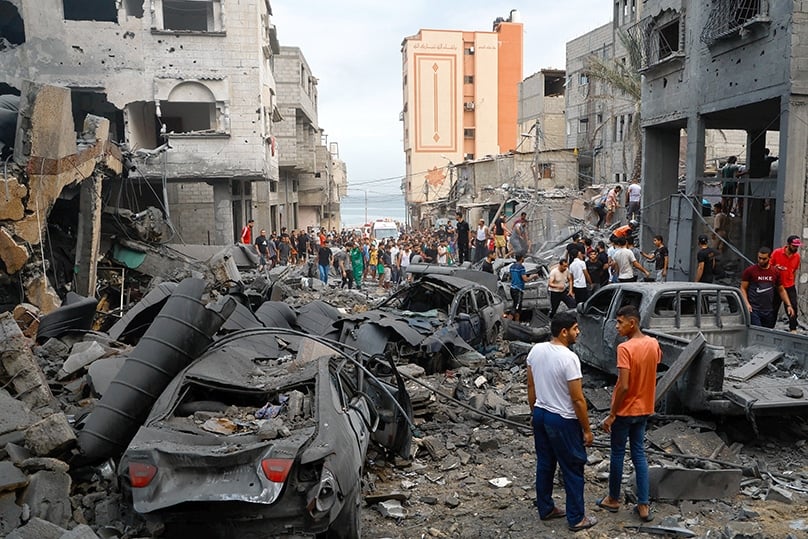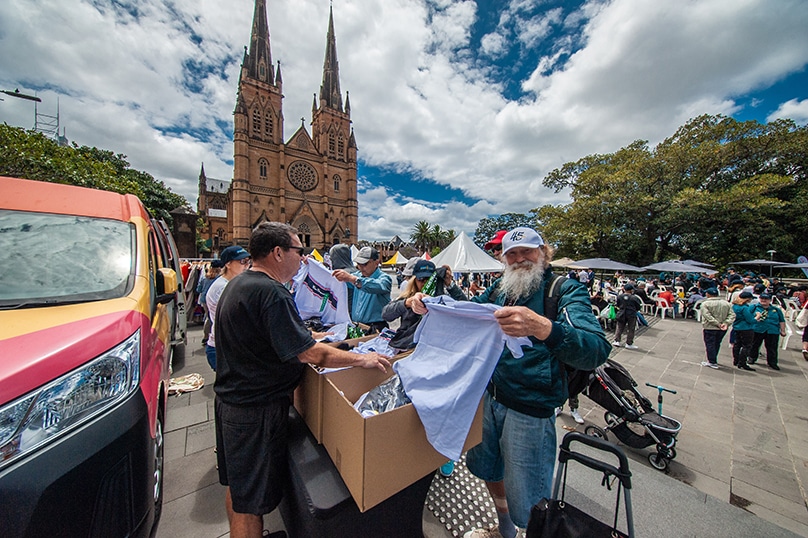
Charles Dickens’ classic, A Tale of Two Cities begins, “It was best of times, it was the worst of times.”
These words ring true for people in every age. No matter the era, people live in times of paradox, and these paradoxes relate directly to the society in which they live.
While some are spared misery and suffering, others will endure these as their “lot in life,” and hardship will characterise their everyday experiences.
Developed nations like Australia are not immune from these paradoxes, and despite the best efforts of governments there is a widening gap between people’s life circumstances.
The disparity is evidenced in income, educational outcomes and life expectancy.
It is glaringly obvious when one sees Sydney’s homeless huddled with their belongings outside of the “high-end” boutique stores in Martin Place. To see this reality is jarring.
In some parts of the world, where the extremes of wealth and poverty are more pronounced, such images are more commonplace.
I well remember meeting a homeless veteran outside of St Patrick’s Cathedral on Fifth Avenue in New York. Legless, he sat in a wheelchair, sheltered only by newspapers.
Without uttering a word, it was clear that for him these were the worst of times.
In some eras the paradoxes are glaring and in others they are far more subtle.
Today, our world enjoys relative stability. By comparison, older generations experienced the Great Depression, a World War and the pervading tensions of the Cold War. Despite the obvious challenges, many speak of these times being simpler and happier.
Fast forward to 2023. While there is ongoing conflict in Ukraine, and more recently in the Holy Land, there are fewer major threats to international peace.
The world enjoys greater security, and more people enjoy an improved standard of living.

Paradoxically however, people are not necessarily happier. Some of the wealthiest nations on earth are beset by the problem of suicide, especially youth suicide. Comfortable living conditions haven’t given rise to a greater sense of personal fulfillment.
For many, economic depression has given way to a depression of wellbeing and this is evidenced in a range of behaviours.
Although we enjoy incredible opportunities in our current times, many people seem angry with the world and angry with others. Perhaps also, angry with themselves.
In recent weeks, I have been disturbed by the nature of some public protests which have been characterised by anger. While believing in “free speech,” this does not give a licence to insult or vilify others.
We must guard against this carefully. All too sadly, civility and decency can quickly give way to the darker side of our natures.
Hate speech and hate crimes are not a new phenomenon and they can emerge, even in the best of times.
Dickens continued his opening, “It was the age of wisdom, it was the age of foolishness, it was the epoch of belief, it was the epoch of incredulity, it was the season of light, it was the season of darkness, it was the spring of hope, it was the winter of despair.”
I would suggest that these are the very times that we live in and that we see and experience all these things.
In these and in all circumstances, we should not be passive bystanders—people who observe injustice, darkness and suffering, and who do nothing.
Rather, we are called to see, judge and act. And for this, we need not look any further than Catholic Social Teaching.
Catholic Social Teaching has been articulated through a tradition of papal and conciliar documents that explore and express the social demands of our faith.
It provides a systematic moral framework which is underpinned by foundational principles that affirm fundamental truths, give moral guidance and offer ethical criteria for “faith in action.”
The social mission of the church offers a vision of a more just and equitable society and for responding to both the best and worst of times.
